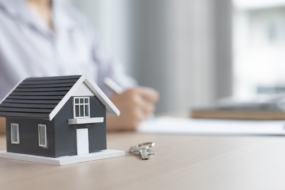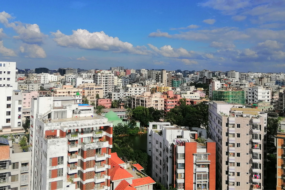When retirement is on the horizon, people are generally confused as to how to invest the hard-earned money. Most retirees tend to invest in such schemes where a regular monthly income can supplement their pension (if applicable). From mutual funds to monthly income plans to gold, abundant options make things even worse. In such a scenario, one option for sound investment of accumulated wealth is to buy a second home. In fact, it has emerged as one of the most popular investment options nowadays as property is said to increase in value over time. The following factors support investment in a second home-
Regular Rental Income
Regular rental income is a big plus with property investments. While you are in a dilemma to invest the corpus in a fruitful instrument, the second home tops the list due to its income-generating capacity. Investments in gold or mutual funds are less likely to generate so much monthly income as from a property on rent. This income coupled with the pension will be a double benefit for the retiree.
Increasing Rentals
In most cases, the value of the property investment increases with time and so does the rent potential. While the cost remains the same, the increasing rentals are a source of incremental income . Even if the person avails of a home loan, the monthly rent will cover up the decreasing EMIs. Once the loan is completely paid off, this rental is your pure income.
However, if you go for other retirement plans, the chances of getting high returns come with high risk as these instruments are generally stock market-linked. Exposure to very high-risk instruments can be dangerous in this age group.
Tax Savings
Buying a second home comes with additional tax benefits. Investment in a second home gets tax benefits under Section 80C and Section 10 (10A) of the Income Tax Act. Although other investments by the retirees are also covered under these sections. For example, buying a home guarantees benefits under Section 80 C as it offers benefits on the principal home loan amount. In addition to this, interest paid on the home loan is also entitled to tax deductions under Section 24. It must be noted that while you are buying a second home, you can claim a deduction of Rs 1.5 lakh on the principal home loan amount and Rs 2 lakh on the interest payment under Section 80C and 24B respectively.
Cover against Emergencies
While you are in your autumn years, the second home can be a solid asset. With rising inflation levels, the rental income and rising property value can act as a cushion against emergencies. Although some retirement plans offer to provide a lump sum amount to your children in your absence, a second home can be a robust asset in case of any eventuality. It can also be sold if the need arises.
Last Word
Having enumerated the benefits of a second home, it is also advised to apply caution while buying a second home. You must try to buy a second home at least 10-15 years before your retirement so that you can pay up the EMIs comfortably.
In addition to this, taking help from a professional financial planner is also advisable. This way, you would be able to evaluate the impact and changes in your retirement portfolio. The investment into a second home should also be backed by proper research. A property bought at a prime location or near markets will fetch more handsome rental returns than the one bought at a remote location.
Conclusively, if planned and executed properly, buying a second home for retirement can be a very wise decision. – Suren Goyal, Partner, RPS Group




